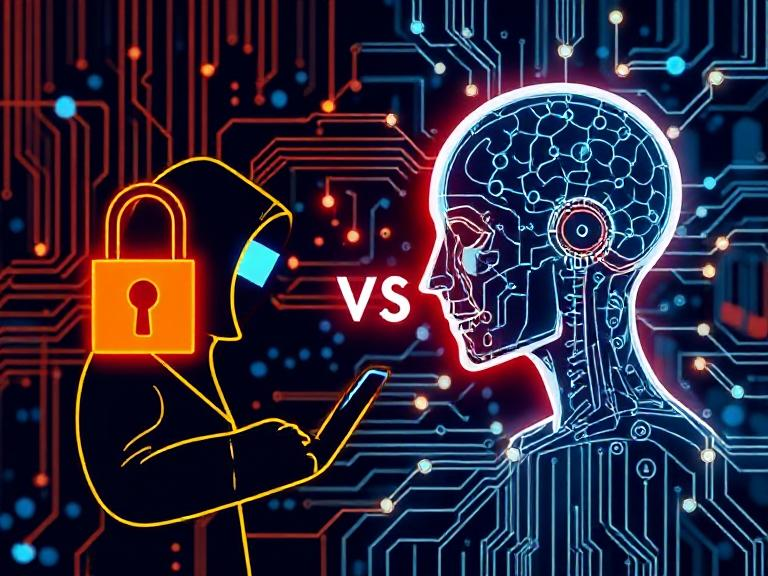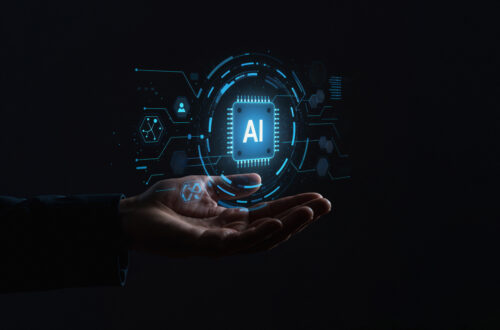The ever-changing technology realm has established two key fields that provide high demand and powerful impact: Cybersecurity together with Artificial Intelligence (AI). These fields provide strong career prospects but the level of difficulty and necessary skills along with their uses distinguish them from one another. Making the selection between cybersecurity and AI becomes easier with this article’s examination of their fundamental aspects.
What is Cybersecurity?

Cybersecurity functions as the practice that safeguards digital systems alongside networks against harmful computer-based attacks. The main focus of cybersecurity management consists of developing protective methods that stop cyber intruders from accessing unauthorized data while blocking related security threats. Cybersecurity professionals dedicate their work toward protecting information by focusing on its confidentiality and integrity alongside availability requirements.
Key Areas in Cybersecurity:
The protection of networks along with infrastructure against intrusions forms the core aspect of network security.
Information Security: Safeguarding sensitive data.
Through ethical hacking, professionals reveal network weaknesses by performing attacks that replicate such threats.
Security breach management and mitigation constitute Incident Response.
What is Artificial Intelligence?
Artificial Intelligence functions as the process of emulating human cognitive performance within programmed devices. The development of algorithms and systems enables machines to carry out duties that usually require human intelligence specifically learning reasoning and problem-solving skills. AI functions through multiple applications which include natural language processing and computer vision together with robotics.
Key Areas in AI:
Machine Learning uses training algorithms that master information from presented data.
The field of deep learning belongs to machine learning because it works exclusively with neural network algorithms.
Through Natural Language Processing (NLP) machines obtain the capability to interpret human communication.
The training of systems to understand and analyze visual information constitutes Computer Vision as a technology.
Cybersecurity and Artificial Intelligence exist as distinct fields where cybersecurity proves less difficult to learn according to popular belief.
Your personal background together with your interests and career targets determine which field between cybersecurity or AI proves simpler. An analysis of the two domains follows according to multiple evaluation parameters:
1. Learning Curve
Starting with cybersecurity proves more straightforward since it suits novices especially well. Implementing this skill requires a strong knowledge of networking together with proficiency in operating systems in addition to basic programming fundamentals. Multiple cybersecurity concepts materialize as hands-on tools that enhance learning through practical applications of the subject matter.
AI poses advanced learning challenges because it requires extensive knowledge of mathematics statistics alongside programming skills. Novice learners will face difficulties when they study both algorithms and data structures as well as neural networks.
2. Prerequisite Knowledge
The essential skills for cybersecurity include understanding IT systems as well as networking protocols together with scripting language capabilities that include Python or Bash. Obtaining CompTIA Security+ certification or becoming a Certified Ethical Hacker (CEH) certifies your fundamental competency fundamental skills.
AI: Beginners need fundamental training in linear algebra together with calculus and probability as well as proficiency in Python R or Java programming. Understanding of popular machine learning frameworks including TensorFlow and PyTorch provides additional benefits.
3. Career Opportunities
Cybersecurity: Cybersecurity professionals are in high demand owing to the burgeoning number of cyber attacks. Professions such as Security Analyst, Penetration Tester, and Cybersecurity Consultant are in great demand.
AI: AI experts too are in huge demand, especially in sectors such as healthcare, finance, and autonomous systems. My professions are Data Scientist, Machine Learning Engineer, and AI Researcher.
4. Tools and Technologies
Cybersecurity: Tools such as Wireshark, Metasploit, and Nmap are most frequently used. These tools are comparatively simpler to learn and implement.
AI: AI demands knowledge of advanced tools and frameworks such as TensorFlow, Keras, and Scikit-learn. These tools tend to need a better understanding of underlying algorithms.
5. Job Market and Salary
Cybersecurity: Recent reports suggest that the average salary for cybersecurity experts is between
70,000 to 70,000to120,000 annually, based on experience and location.
AI: AI experts command more pay, with positions such as Machine Learning Engineers commanding between
100,000 and 100,000and150,000 per year.
Which Should You Pick?
Pick Cybersecurity If:
You like hands-on, practical work.
You are familiar with IT or networking.
You prefer to jumpstart your career with comparatively less initial learning.
Pick Artificial Intelligence If:
You are keen on mathematics and coding.
You like solving difficult problems and dealing with data.
You’re willing to invest time in learning advanced concepts.
Conclusion
Both artificial intelligence and cybersecurity are lucrative careers with great growth prospects. Cybersecurity is easier to begin with, particularly for those who have an IT background, whereas AI demands greater knowledge of mathematics and programming but has greater earning capacity. It all depends on your interests, skills, and career goals.
By learning about the distinction between these two disciplines, you can make an educated choice and embark on a successful tech career. No matter whether you pursue cybersecurity or AI, both are promising areas with great opportunities to influence the future of technology.
Visit more on the website: Softreads



